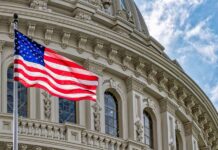Some 45 states have a religious exemption for childhood vaccination requirements. New York, California, Maine, Mississippi and West Virginia have eliminated the exemption. Court challenges to the exemption in five other states have failed.
Democratic Rep. Jaime Foster, a backer of the Connecticut bill now under consideration, said disease outbreaks have consequences. A 2018 measles outbreak in New York had financial consequences of $8.4 million, while the median cost of a measles outbreak is $32,000 per case, Foster said.
House Minority Leader Vincent Candelora said the law could be challenged in court because the state constitution guarantees the right to a public education. According to Candelora, lawmakers report hearing from parents who face difficulty securing a medical exemption that they are forced to seek a religious exemption.
He objected that the bill is “totally silent” on what to do with students and parents who cannot comply with mandatory vaccination.
“There are individuals in our caucus who want to protect those children from being thrown out, but it doesn’t fundamentally address the questions of what we do going forward as a state and how the children who are unable to have public education, how that education is provided to them.”
Opponents of the bill testified that it could divide families or force families who cannot afford it to homeschool. Some parents said they would be forced to keep children home because they do not believe they should be vaccinated.
While backers of the bill said exemptions put at risk children with compromised immune systems who cannot get a vaccine, Rep. Doug Dubitsky, a Republican, said students have little choice in the matter of their religion.
“So throwing those children out of school, it’s not based on their choice, it’s based on the choice of the people in this chamber, people who should know better,” he said, the Associated Press reports.
The debate comes after more than a year of the new coronavirus epidemic, which has killed hundreds of thousands and hospitalized many more. The roll-out of vaccines against the COVID-19 virus is hoped to mark a permanent decline in new coronavirus infections.
A March 4 letter from the Connecticut Catholic Conference, signed by the state’s leading Catholic bishops, said “people should feel free in good conscience to receive any of the vaccines currently available for the sake of their own health and the common good, which requires the prompt vaccination of as many people as possible.”
The bishops cited the guidance of the U.S. Conference of Catholic Bishops and of the Holy See.
“At the same time, the Church continues to advocate for the creation of vaccines that do not rely on cell lines derived, even remotely, from abortion,” Connecticut’s bishops said.
The United States Conference of Catholic Bishops last month echoed the Vatican in stating that it is “morally acceptable” to receive COVID-19 vaccines produced using cell lines from aborted fetuses when no alternative is available, but if possible, Catholics ought to choose a vaccine with a more remote connection to abortion.
The mRNA vaccines available from Pfizer and Moderna have an extremely remote connection to abortion in the testing phase, leading ethicists to judge those vaccines “ethically uncontroversial,” the USCCB said.
The Congregation for the Doctrine of the Faith published a note in December 2020 explaining that “the use of such vaccines does not constitute formal cooperation with the abortion from which the cells used in production of the vaccines derive,” while also urging pharmaceutical companies and governmental health agencies to “produce, approve, distribute and offer ethically acceptable vaccines that do not create problems of conscience for either health care providers or the people to be vaccinated.”

























